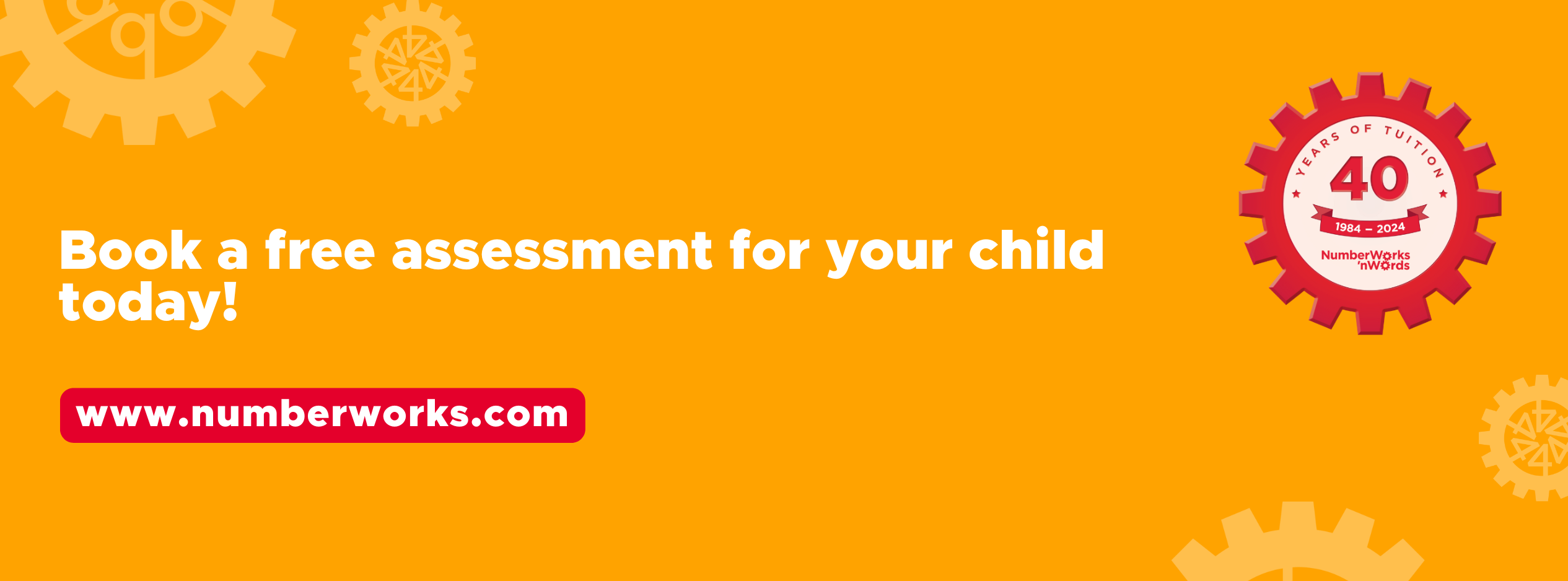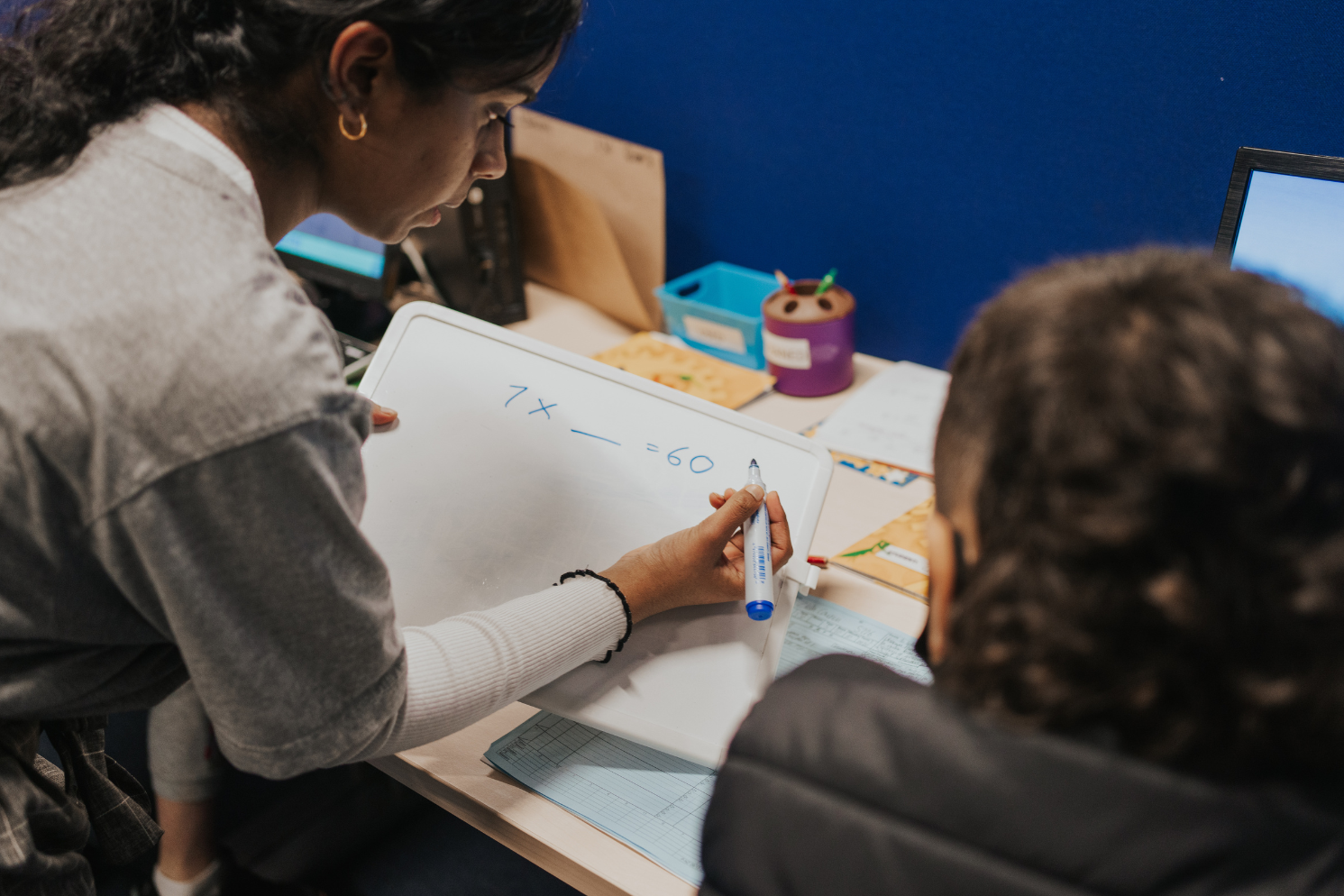Essential Back-to-School Tips for Parents
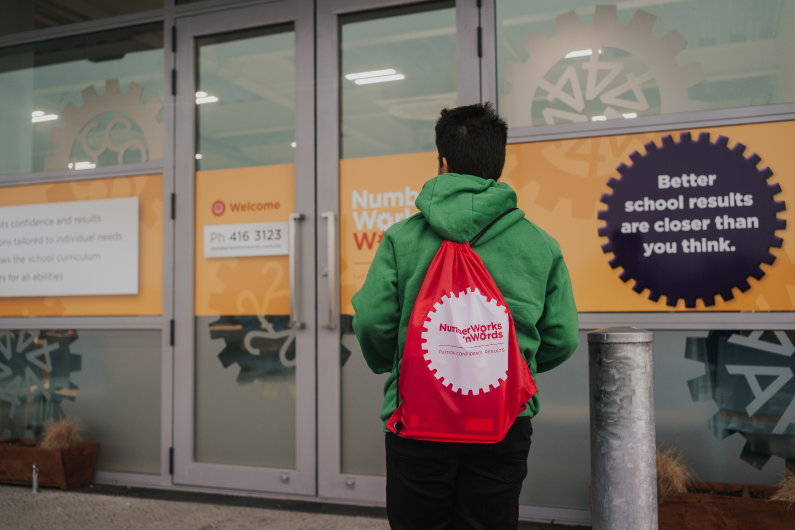
As parents and caregivers, preparing your child for school involves more than just ensuring they are ready to tackle academic challenges. A successful school year requires a balance of essential items, proper planning, and a supportive environment. From basic school supplies like pens and pencils to considerations about extracurricular activities, each element plays a role in ensuring that your child has a fulfilling and productive educational experience.
This blog will explore the essential items and considerations that can set your child up for success.
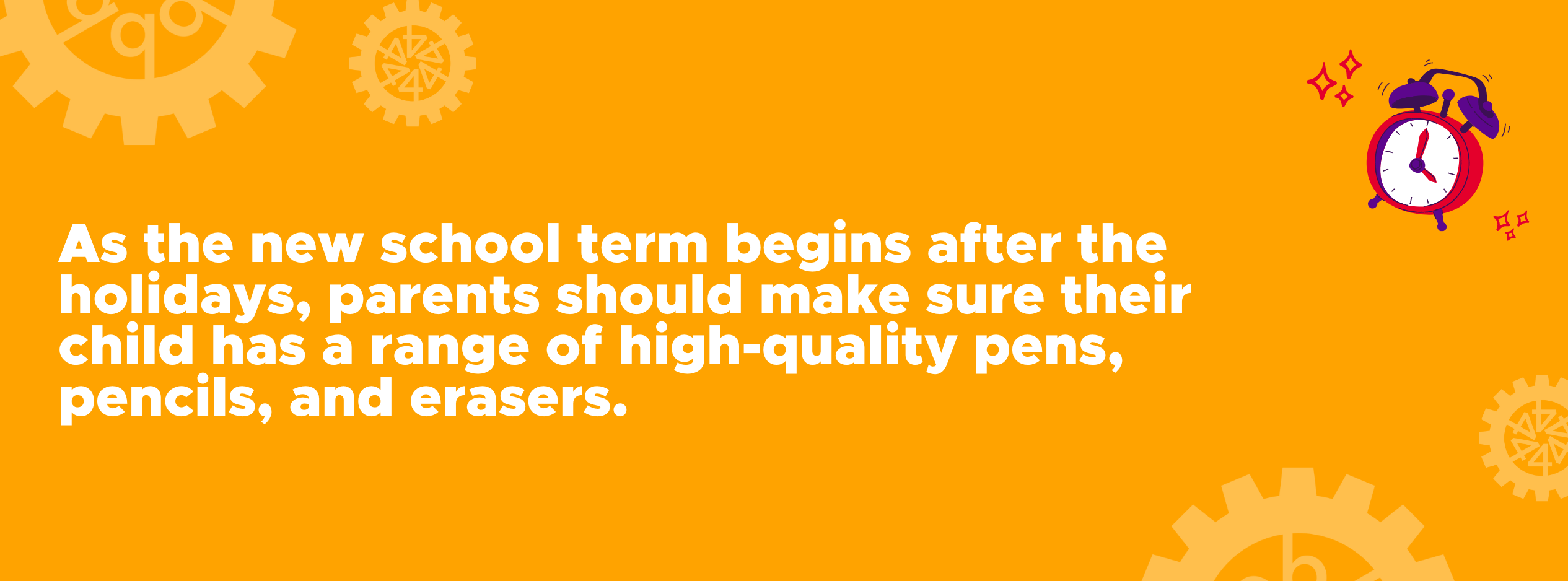
Pens, Pencils, and Other Writing Tools
The foundation of a child’s school supplies starts with the basics: pens, pencils, and other writing instruments. As the new school term begins after the holidays, parents should make sure their child has a range of high-quality pens, pencils, and erasers. Pencils are especially important for younger children who are still developing their handwriting skills, while older students will need pens for taking notes and completing assignments.
Other essential writing tools include coloured pencils, highlighters, and markers. These items can assist with organisation, colour-coding notes, or even creative tasks like art projects. Keeping these supplies stocked in your child’s pencil case is essential for supporting their academic success.
Pencil Case
A sturdy pencil case is essential to keeping these tools organised. The pencil case allows your child to easily carry their pens, pencils, and erasers without the risk of losing them. Whether the pencil case is large or compact, it should be durable enough to withstand the wear and tear of daily use.
Subject Books and Notebooks
Books and notebooks are necessary for all subjects that your child will study. The type and number of subject books will depend on the grade level and curriculum, but typically, two or three books for each subject and a few notebooks is recommended. Depending on your child’s school, digital resources like tablets or laptops may also be used, so it’s wise to check whether any special tech devices are required. Keeping books labelled by subject can help your child stay organised and make it easier for them to quickly find the correct book when searching through their bag or classroom book box.
For younger children, you may need to buy books designed for practice, such as those with larger lines for writing.
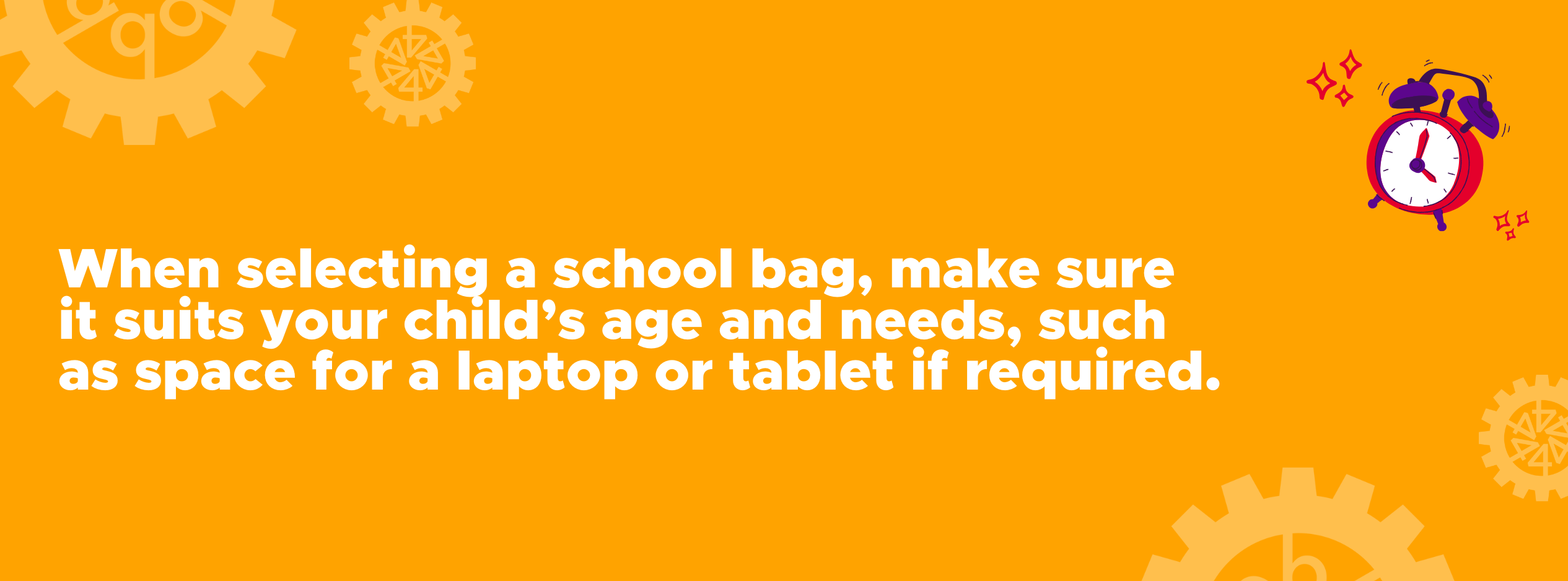
School Bag
Choosing the right school bag is an essential part of your child’s school preparation. The bag should be large enough to carry all their books, supplies, and lunch while remaining comfortable to wear. It’s important to choose a bag with padded straps to reduce strain on your child’s shoulders. Backpacks with multiple compartments can also help them stay organised and reduce the risk of misplacing items. When selecting a school bag, make sure it suits your child’s age and needs, such as space for a laptop or tablet if required.
Many children like backpacks with their favourite colours or characters, but practicality should always be prioritised. It’s crucial that the bag is lightweight and adjustable to prevent back strain.
Lunchbox and Water Bottle
A good lunchbox and water bottle are essential for your child’s daily meals. Not only should they be functional, but they should also be easy for your child to open and close. Choosing a lunchbox with multiple compartments can help separate different foods and keep meals organised. For younger children, having a lunchbox with vibrant colours or fun shapes might encourage them to eat their meals.
In addition to a lunchbox, a durable water bottle is important for keeping your child hydrated throughout the day. Many schools now promote hydration during lessons, so a water bottle that is easy to refill and leak-proof will be very helpful. Stainless steel or BPA-free plastic bottles are both good choices for long-lasting quality.
Uniform and Shoes
Most schools have a uniform policy, which helps children feel part of a cohesive school community. It’s wise to purchase extra uniforms to ensure your child always has a clean one on hand, especially if they engage in physical activities. For example, having several sets of socks, shirts, trousers, or skirts ensures that laundry days don’t cause unnecessary stress. Depending on your child’s activities, you may need to purchase PE gear, sports shoes, a swimming suit, and even a swim bag for swimming lessons. These items help your child participate comfortably and confidently in physical education and after-school sports.
Choosing the right shoes is also crucial. Comfort and practicality should be prioritised, as children will be on their feet most of the day. Well-fitted shoes are necessary for preventing foot discomfort or potential injuries. Many schools require specific types of shoes (e.g., black shoes), so make sure to check the school's dress code. It’s also important to buy shoes that can handle various weather conditions, whether rain, snow, or sunshine.
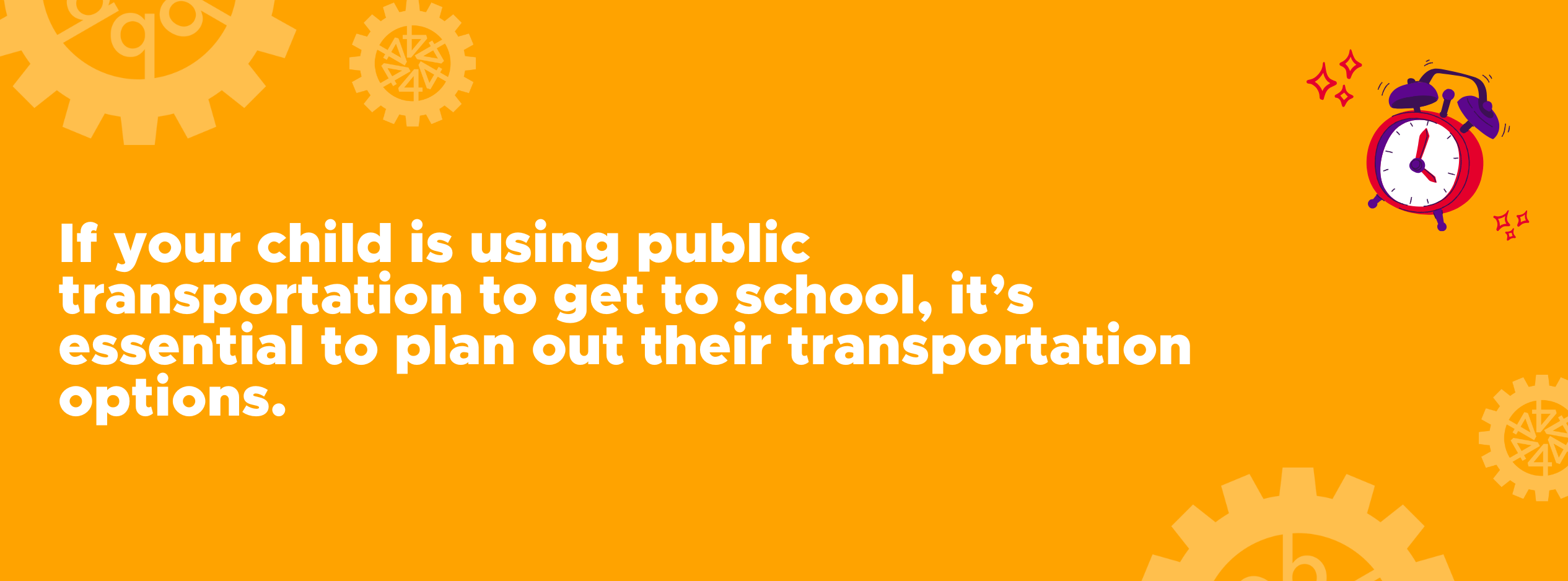
Transport Options
If your child is using public transportation to get to school, it’s essential to plan out their transportation options. Public transport can be a safe and convenient way for children to commute, but safety and reliability are important. Check your local transit routes to ensure your child knows their way around. Familiarising your child with bus or train routes, stops, and schedules will help them feel more confident navigating their commute.
Additionally, a public transport pass or school bus card might be required for discounted fares. Make sure your child has these cards easily accessible before they leave home. It’s also helpful to give your child a backup plan in case there are disruptions in the transport system. Encouraging your child to travel with a buddy or a sibling can enhance their safety.
Quick and Easy Lunch Ideas
Healthy and easy-to-prepare lunch ideas are key to ensuring your child stays energised throughout the school day. Planning ahead is important to make sure lunch isn’t just nutritious but also something your child will enjoy. Quick ideas include whole grain sandwiches with lean protein (like turkey, chicken, or hummus), wraps, salads, and simple pasta dishes. Snack options like fruit, muesli bars, or yoghurt are also excellent choices.
Parents can even involve their children in the lunch-preparation process, making it a fun and engaging task. This can encourage them to make healthier choices and take ownership of their nutrition. Prepping lunches the night before or on weekends can save valuable time on busy school mornings.
After-School and Extracurricular Activities
Extracurricular activities such as music, sports, and tutoring can offer invaluable learning experiences for your child outside of the classroom. Enrolling your child in after-school programmes can promote their social, emotional, and cognitive development. Music lessons can nurture creativity and discipline, while sports can encourage teamwork and physical fitness. If your child is taking music lessons, don’t forget to purchase any required music books or supplies, as these are essential for their practice and progress.
It’s important to balance extracurricular activities with academic responsibilities. Ensure that your child has time for both schoolwork and leisure. Most extracurricular programmes will require enrolment forms, fees, and sometimes equipment, so make sure to check deadlines and prepare ahead of time.
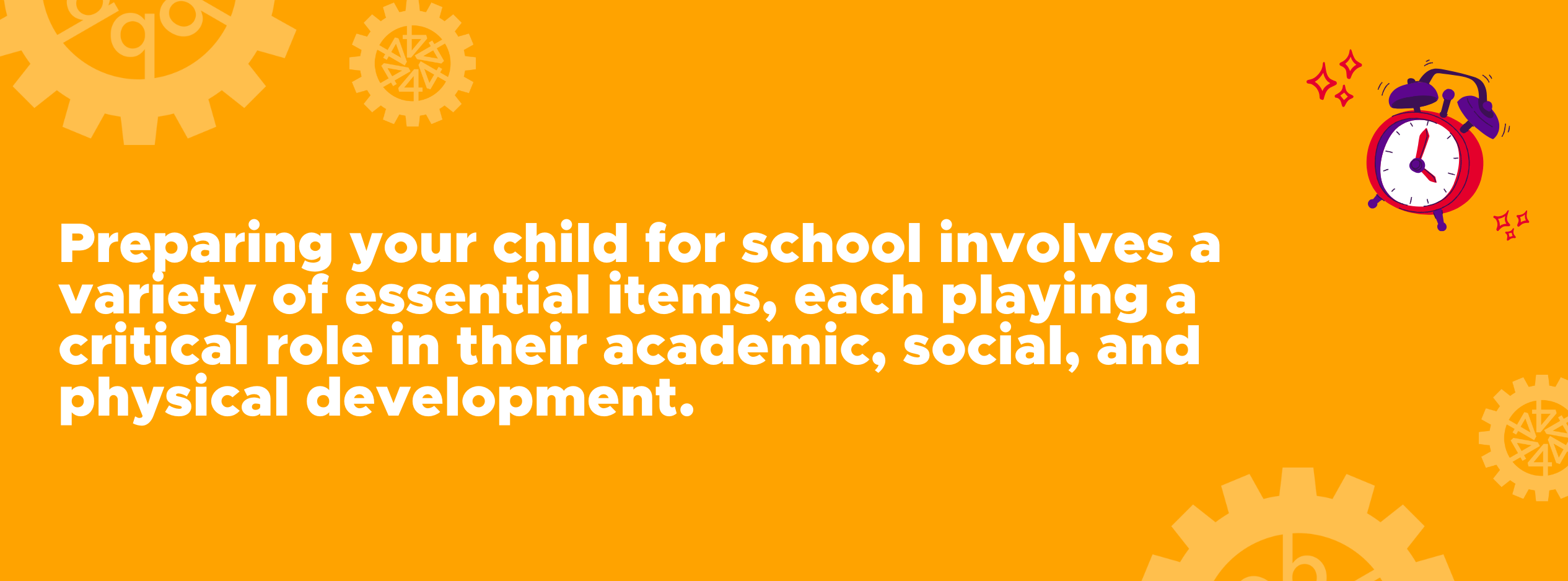
Conclusion
Preparing your child for school involves a variety of essential items, each playing a critical role in their academic, social, and physical development. Pens, pencils, notebooks, school bags, uniforms, and lunchboxes are just the beginning of creating a conducive school experience. From transport options to extracurricular activities, planning ahead ensures that your child is well-equipped to tackle the school year with confidence and success.
If you're considering enrolling your child in tutoring classes to enhance their academic performance, we'd be happy to help! If you haven't done so yet, you can easily book a FREE, no-obligation learning assessment online.
